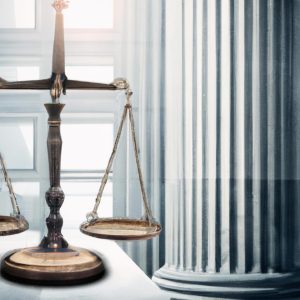In the intricate web of estate planning, the absence of a valid will can leave a tangled legacy of unanswered questions and unresolved disputes. When faced with the perplexing issue of intestate succession, the transfer of assets becomes a minefield of uncertainty. In this article, we will delve into the labyrinthine world of ”without a will, who gets what,” shedding light on the rules and regulations that govern the distribution of assets in the absence of a testamentary document. As seasoned practitioners in the realm of estate law, the team at Morgan Legal Group in New York City is dedicated to providing clarity and guidance in navigating the complexities of intestacy proceedings.
Understanding the Intestacy Laws in New York
In New York, when a person passes away without a will, their assets will be distributed according to the intestacy laws of the state. This means that the court will determine how the deceased person’s property is divided among their family members. It is important to understand these laws to ensure that your assets are distributed according to your wishes.
Under New York intestacy laws, if a person passes away without a will and is survived by a spouse and children, the spouse will inherit the first $50,000 of the deceased person’s estate, plus half of the remaining estate. The children will inherit the other half of the estate. If there are no surviving children, the spouse will inherit the first $50,000 of the estate, and the rest will go to the deceased person’s parents. If there are no surviving parents, the estate will be divided among the deceased person’s siblings.
Distribution of Assets According to the Laws of Intestacy
When a person passes away without a will, their assets are distributed according to the laws of intestacy. In New York City, this means that the deceased’s assets will be distributed to their closest living relatives.
The in New York City typically follows this hierarchy:
- Spouse or domestic partner
- Children
- Grandchildren
- Parents
- Siblings
It is important to note that without a will in place, the distribution of assets may not align with the deceased’s wishes. To ensure that your assets are distributed according to your preferences, it is essential to create a will with the help of an experienced estate planning attorney. Contact Morgan Legal Group in New York City for assistance with estate planning, probate, elder law, wills, and trusts.
Implications of Not Having a Will in New York
Not having a will in New York can lead to a number of implications that may complicate the distribution of your assets after you pass away. Without a will, the state’s intestacy laws will determine who inherits your property, which may not align with your wishes. This could lead to disputes among family members, delays in the distribution of assets, and potentially higher estate taxes.
Furthermore, without a will, the court will appoint an administrator to handle your estate, which can result in additional costs and delays. It is important to consult with an experienced estate planning attorney to ensure that your assets are distributed according to your wishes and to avoid the .
Importance of Consulting an Estate Planning Attorney
Consulting an estate planning attorney is crucial for ensuring that your assets are distributed according to your wishes after you pass away. Without a proper estate plan in place, the fate of your belongings may be left up to state laws and decisions by the court. By working with an attorney who specializes in estate planning, you can create a will that clearly outlines who will receive your property and assets.
An experienced estate planning attorney can also help you minimize taxes and fees associated with estate distribution, protect your assets from creditors, and provide for your loved ones in the event of your passing. Additionally, by consulting with a professional, you can ensure that your estate plan is legally sound and will hold up in court. Without a well-thought-out estate plan, your loved ones may face lengthy and costly legal battles to determine who gets what.
Q&A
Q: What happens if someone dies without a will?
A: When someone dies without a will, their assets are distributed according to the laws of intestate succession in their state.
Q: Who inherits the deceased person’s assets if there is no will?
A: Without a will, the deceased person’s assets will typically be inherited by their closest living relatives, such as their spouse, children, parents, or siblings.
Q: Are there any exceptions to the laws of intestate succession?
A: In some cases, close friends or unmarried partners may be able to inherit a portion of the deceased person’s assets if there is no will, but this varies by state.
Q: Can someone challenge the distribution of assets if there is no will?
A: Yes, it is possible for someone to challenge the distribution of assets if there is no will, but they would need to prove that the distribution does not align with the deceased person’s wishes.
Q: How can someone ensure their assets are distributed according to their wishes if they do not have a will?
A: To ensure that their assets are distributed according to their wishes, it is highly recommended to create a will and update it regularly. Additionally, consulting with an estate planning attorney can provide guidance on the best ways to protect one’s assets.
The Conclusion
In conclusion, the importance of having a will cannot be overstated. Without a will, the distribution of your assets may be left up to state laws and probate courts, potentially causing unnecessary stress and conflict for your loved ones. By taking the time to create a clear and detailed will, you can ensure that your wishes are carried out and that your loved ones are provided for after your passing. So don’t delay, start planning for the future today. Your family will thank you for it.











